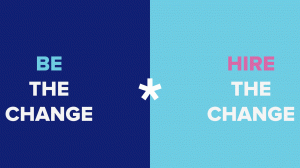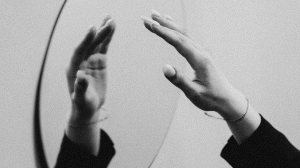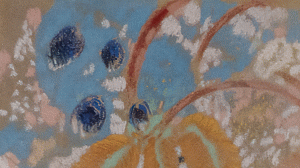Taking the time to look back at your year from a personal point of view is a great way to make sure you are setting the right intentions for the year ahead. Here is why and how.
It was the afternoon of the last day of the year of 1992. I was 12 years old and was sitting in front of the television waiting for the year's retrospective to begin. I was blown away to see how much had happened in one year: the end of the Cold War, the division of Czechoslovakia, the American basketball Dream Team performing at the Barcelona Olympics, Prince Charles and Princess Diana announcing their separation and the outbreak of civil war in Yugoslavia.
Since then I have become a fan of retrospectives. There was something special about pausing for a moment and looking back at the year that had just passed. For me, it was almost like an invitation not just to remember the past, but to reflect on it and do it better in the future.
As I got older, I saw the benefit of doing this at work: pausing at the end of a project to reflect on what went well, what could have gone better and what we could try next time. If you took that to heart, you could really see how the team had learned from it before just jumping into the next task.
Maybe, in my work experience and observations, that's why I was one of the few employees who enjoyed preparing for my annual review. I would see it as a fantastic opportunity to stop and reflect on my work in an honest way. Of course, we don't always feel that these annual reviews are fair, but at least the part that involved my own reflection was in my control - and I could approach it however I wanted, and also take the learning for me personally, not just professionally.
But my favourite reviews are the personal ones at the end of the year. Three things really excite me about them:
- The chance to revisit beautiful and transformative moments of the year - and relive them in some way.
- Becoming aware of all the learning and growth (even through difficult situations) and realising that you are not the same person you were a year ago.
- The opportunity to take charge of your life and make plans for the things you want to change, achieve or let go of.
Why should you do a retrospective?
1. To see the bigger picture
Have you ever noticed how people seem to remember the bad things more than the good? Scientists say it has to do with our survival instincts. Think about it: a long time ago it was much more important to notice the lion in the bush than the beautiful flower growing on the other side of the path. This whole "focus on the negative" thing was very helpful when we were dodging predators. But nowadays? It can make life seem a little bleaker than it really is.
Revisiting positive experiences can actually be beneficial to our mental wellbeing. When we recall moments of deep happiness, we can often recreate that overall sense of contentment. This isn't just a fleeting feeling; there's science behind it. Remembering happy times can trigger the release of dopamine, a neurotransmitter associated with pleasure and reward.
So while our brains may be wired to remember the bad, we have the power to consciously focus on and benefit from the good, which could be a valuable tool in maintaining emotional balance and promoting overall well being.
So, as you take a more conscious look at your year, make sure you're not just focusing on the things that didn't go well and what you want to do better next year. See what your small victories were, the things that went well, the little moments that put a smile on your face.
2. To have clarity about what comes next
Once you know where you've been, you can start planning where you want to go. Take a moment to look back at the journey that was your last year. It's like connecting the dots - you may see some patterns you never noticed before - or you did and they're still there. And through this self-reflection you develop a deeper understanding of your motivations, actions and reactions.
When you dive into your wins and oops moments, you're essentially collecting life hacks for the future you. It's a great way to check that you're still on track with your big dreams and what really matters to you (see the previous article on the importance of knowing your values). It highlights areas of personal growth and identifies aspects that need improvement, which are crucial for ongoing development. Once you have done this, then you are ready to set some killer goals that really mean something.
Ultimately, by gaining clarity about your past experiences and current standing, you'll be better equipped to make informed decisions and plans for the future, setting the stage for intentional growth and positive change in the coming year.
How should I do my own retrospective?
There are many ways to do a retrospective and many tools to help you do it. My husband and I started doing our retrospectives as a little ritual four years ago. And last year we even invited some friends to join us. So here are my tips for creating an enjoyable retrospective:
- Block off the time - In my experience, doing it on the 31st of December can feel a bit rushed. Blocking off 2 or 3 hours on a day or evening before Christmas might be wise and a way to ensure you don't triage it.
- Create a nice environment - We do this with a nice playlist (many music streaming platforms offer a list of your most listened to songs of the year, which can be a great way to remember some moments : ), a glass of wine and some snacks.
- Activate your memory - To help me remember what happened during the month, I check pictures taken during the period, my calendar, emails, online chats and my diary.
- Map the year - I literally start in chronological order by writing January on a piece of paper and adding a list of key events, experiences and feelings from that month underneath. I repeat this process for each month of the year. In the end I have a good visual map of the 12 months.
From there, you can answer some key questions:
- What were the highs and lows of the year?
- How did you prioritise this year?
- What strengths have you discovered in yourself?
- What was the most valuable lesson you learned?
- How have you changed over the past year?
- In what ways have you made a positive difference in the lives of others?
- Which habits worked well for you and which didn't?
- Who supported you?
The Year Compass makes a great job in asking you these questions. It is for free, offered in many languages and you can do it either digitally or print their booklet. It is divided into reflecting on the past year and setting your goals for the year ahead.
If you want something more visual you can draw a circle and divide it into 8 parts (like a pizza). You can then name the pieces as the main areas of your life. For example: physical health, finances, career or education, personal relationships, emotional well being, etc.
Now look back over the year for each of these areas and give yourself a score from 0-10 (10 being the best). For example, if you give yourself a 7 in career, what does that mean? What did you achieve? What didn't you achieve?
With clarity about where you are now, what has worked and what hasn't, you are ready to think about what you want to keep, change or add for next year : )
Are you ready to “watch” your own year retrospective before 2024 ends?
----------------------------------------------------------------

Caroline d'Essen is a life and career coach for women with a background in campaigning and people and culture in the non-profit sector. In addition to adventure, she loves to share her experiences through writing. You can find her at her happiest on the beach playing volleyball or on the dance floor. You can learn more about her at: www.linkedin.com/in/carolinedessen or contact her at: carolinedessen@gmail.com










